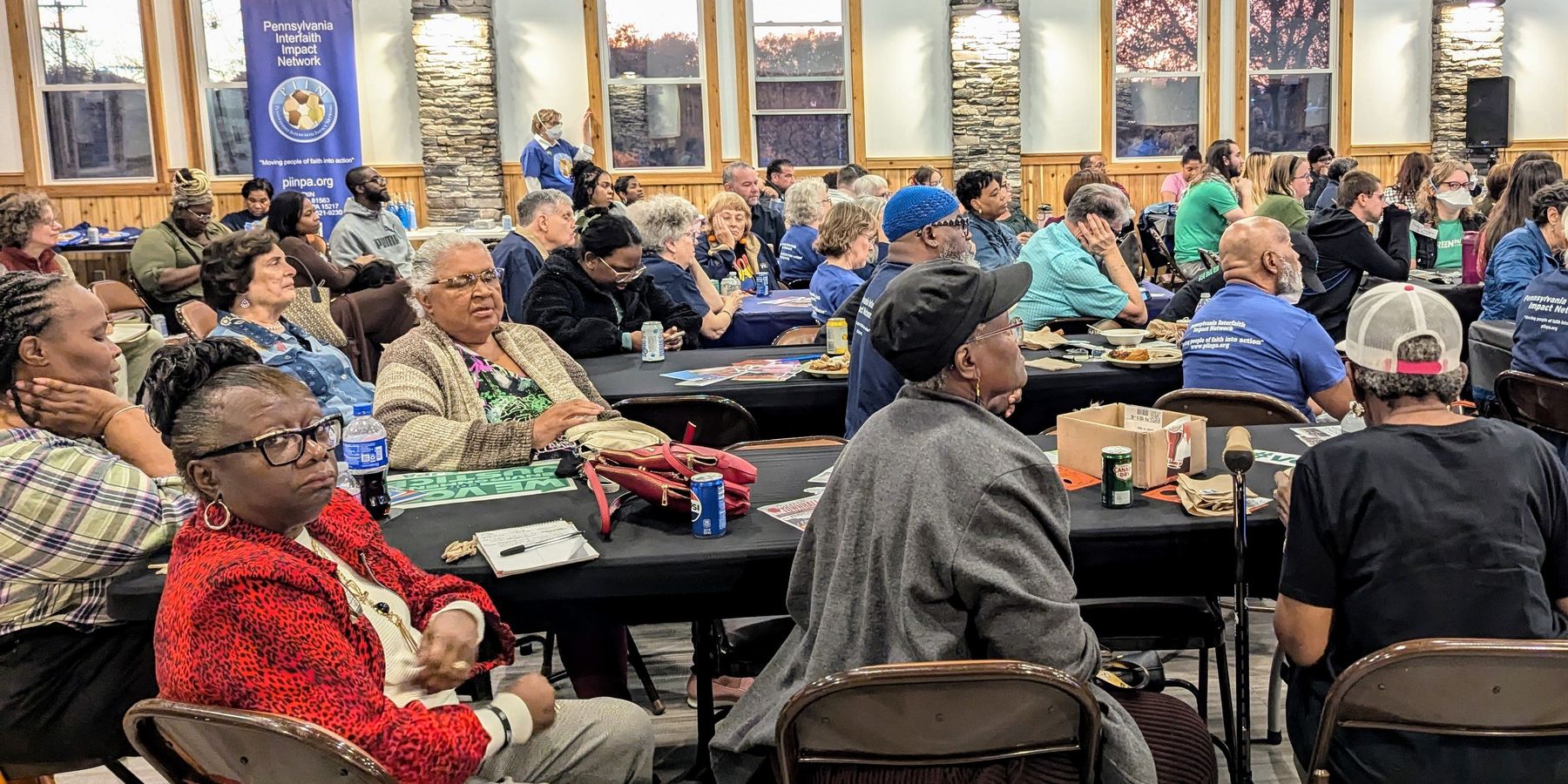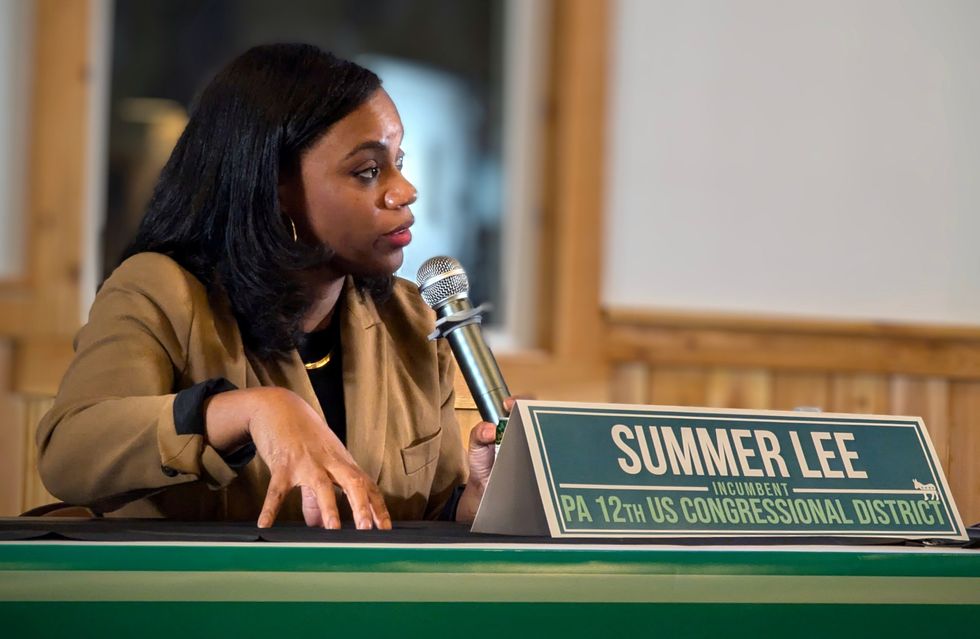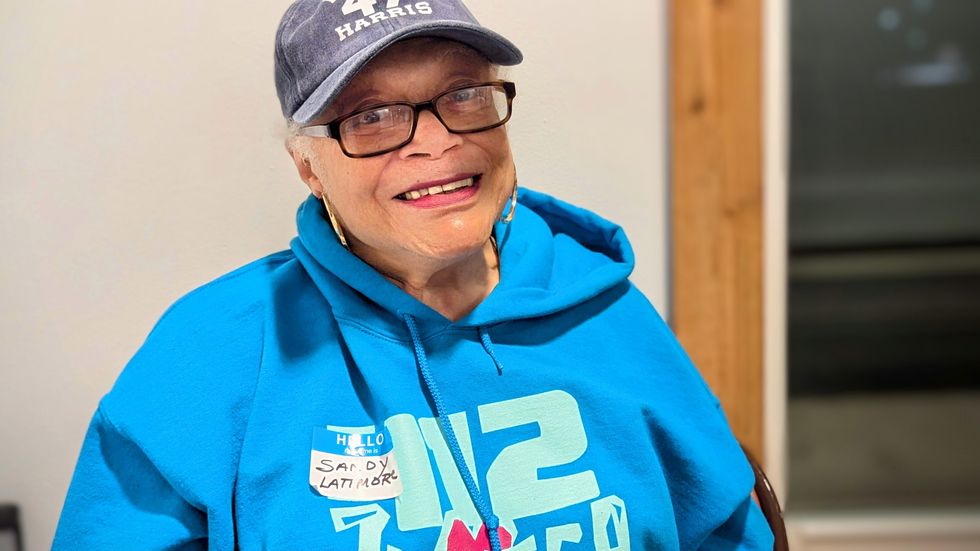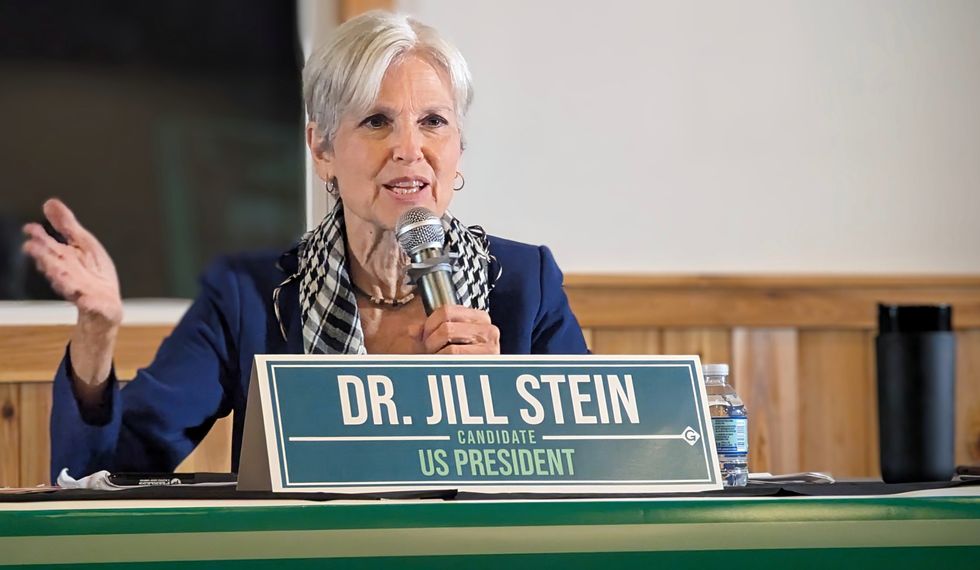
Pennsylvania voters press local, national candidates on fracking just days before election
Environmental justice communities near fracking want more answers — less political football.
PITTSBURGH — Fracking took center stage on Wednesday night, when political candidates who will be on the ballot in Pennsylvania on Election Day answered questions about environmental justice from local environmental advocacy groups and community members.
The event, organized by 412 Justice, a Pittsburgh-based community advocacy group, and co-sponsored by dozens of other western Pennsylvania advocacy groups, prioritized the most pressing issues for residents of the “Mon Valley,” a group of economically and environmentally disenfranchised communities along the Monongahela River south of Pittsburgh.
“I came out tonight because I don’t believe either candidate is representing me,” Frederica Phillips, a resident of Irwin, Pennsylvania who grew up in the Mon Valley, told EHN, referring to U.S. presidential candidates Kamala Harris and Donald Trump. “And I do believe that our environment is killing us, and so are our politicians.”
Political candidates from every party at every level of government were invited. Here’s who attended:
- Jill Stein, Green Party candidate for U.S. President
- Leila Hazou, Green Party candidate for U.S. Senate
- Richard L. Weiss, Green Party candidate for Pennsylvania Attorney General
- Erin McClelland, Democratic candidate for Pennsylvania Treasurer
- Summer Lee, Democrat, incumbent U.S. Representative for Pennsylvania
- John Ritter, Republican candidate for the Pennsylvania state House of Representatives (District 25)
Local community advocacy groups and individual residents asked the candidates questions on a wide range of topics, including how they would: protect vulnerable residents from climate change, hold industrial polluters accountable, address local air pollution and water contamination, and handle fracking.
Conversations around the fracking industry during recent presidential debates have implied that candidates must be pro-fracking to win in the swing state, but a recent poll found that 90% of Pennsylvania residents support stricter fracking regulations.
“My position on the dangers of the fracking industry are not necessarily positions as much as facts,” Summer Lee told the crowd. “When we look at the health effects this industry has on the folks who live with it…we see babies with low birth weights, cancer and respiratory illnesses.”

Summer Lee, Democrat, incumbent U.S. Representative for Pennsylvania. “When we look at the health effects this industry has on the folks who live with it…we see babies with low birth weights, cancer and respiratory illnesses,” she told the crowd.
Credit: Kristina Marusic for EHN
Lee was likely referencing a 2023 study by the Pennsylvania Department of Health that found Pennsylvanians living near fracking wells have an increased risk of childhood cancer, asthma and low birth weights.
“A lot of people think that fracking is something you must run on as a candidate because of western Pennsylvania,” Summer Lee added, “but what I’ve learned knocking on doors…is that people all over this region wanted their air and their water quality to be good … they did not want the oil and gas community to be able to continue to ravage our community, and I take that same stance.”
Lee said she’d support stricter regulations for the fracking industry and supporting oil and gas workers by training them for jobs in renewable energy.
Richard Weiss, candidate for Pennsylvania Attorney General, said he also supported transitioning away from fossil fuels and toward renewable energy sources and added, “The fracking industry has a stranglehold on the legislature and public officials. We need a gift ban that prohibits public officials from accepting gifts.”
Erin McClelland, candidate for Pennsylvania Treasurer, spoke about the need to move away from subsidizing fossil fuels and begin prioritizing sustainable investing in the state’s portfolio.
“There’s no reason that a state with a portfolio as large as Pennsylvania’s shouldn’t have a treasurer that’s leading that charge,” McCelland said. “We have an opportunity as a large state and an energy-producing state to come forward and say we want to be a defining voice in what this looks like.”
Both presidential candidate Jill Stein and U.S. Senate candidate Leila Hazou support a complete ban on fracking, while Pennsylvania House of Representatives candidate John Ritter’s position on fracking was unclear.
Local residents in attendance said they were glad to hear political candidates being asked questions about topics that directly impact their quality of life.
“I came tonight because I believe in progress, and I believe things can get better,” LaSaine “Sandy” Latimore, a volunteer with 412 Justice and a resident of Pittsburgh’s Hill District neighborhood, told EHN. “We can't stop fighting for clean water, and clean air, and safe food … We need to continue to fight for what the ideals of this country say it should be.”

“I came tonight because I believe in progress, and I believe things can get better,” LaSaine “Sandy” Latimore, a volunteer with 412 Justice.
Credit: Kristina Marusic for EHN
Jill Stein defends staying in the presidential race
Presidential candidate Jill Stein arrived at the forum late after telling event organizers that she was stuck in traffic. The first question she answered was, “What do you say to people who say a vote for Jill Stein is a vote for Donald Trump?”
“I say that a vote for the Stein-Ware campaign is a vote for the Stein-Ware campaign,” Stein told the crowd. “Politicians do not own our votes. They have to earn our votes.” Stein went on to criticize Harris’s position on Palestine, immigration and fossil fuels. “Do not let them talk you out of your power,” she said. “We, the people, have the power and we need to use it.”

“Politicians do not own our votes. They have to earn our votes," Jill Stein, Green Party candidate for U.S. president, told the crowd.
Credit: Kristina Marusic for EHN
Stein’s platform prioritizes environmental, economic and racial justice, and her positions are generally supported by progressives, including environmental justice advocates — but event organizers told EHN that when they announced that Stein would attend, they got numerous messages from community members saying they planned to boycott the event.
Some Democrats fear Stein’s decision to stay in the race could cost Kamala Harris critical votes, and those boycotting the event said they wanted to avoid even appearing to implicitly endorse Stein’s candidacy.
“Nothing against Jill Stein, but this election is so, so very close,” said Latimore, noting that she plans to vote for Harris. “I don’t want people to be distracted as to truly what’s involved. Four more years of Donald Trump’s authoritarian leanings or four years of a woman who is going to do her best for the American people.”
The full event was recorded and can be viewed on Facebook.













